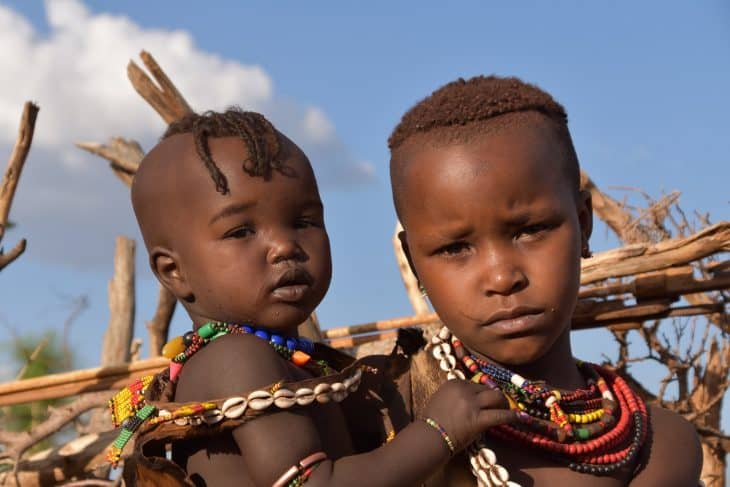
- Capital: Ice Age (200,000 to 30,000 years ago)
- Demonym: Pleistocene Epoch
- Government: Debatable
- Currency: 62 to 67 inches (adult male)
- Location: Approximately 170 pounds (adult male)
- Language: Differs from humans by 0.12%
- Climate: 70,000
- Religion: Eurasia
- Area: Gibraltar
- Population: Approximately 30 years
- Food: Ethiopia Is Considered the Birthplace of Coffee
- History: Ethiopia Is One of the Only Countries in Africa Never to Have Been Colonized
- Food: Ethiopia Has Its Own Specialty Bread Called Injera
- Religion: Ethiopia Is the Birthplace of Christian Civilization
- Food: Ethiopia Is a Haven for Vegetarians and Vegans
- Family: Ethiopia’s Rural Way of Life Means There Are Many Large, Extended Families
- History: Gebeta, the World’s Oldest Board Game, Has Its Roots in Ethiopia
- Family: Ethiopians Don’t Have a Traditional Family Naming System
- Culture: Ethiopians Are Known for a Rather Rare and Special Dance Called Eskista
- History: The Country Has Around 80 Different Ethnic Groups
- The Ethiopian Calendar Has 13 Months!
- Ethiopian People Let the Sun Rule Their Time
- Ethiopia Is Home to the Gelada Baboon – Which isn’t Actually a Baboon at All!
- Ethiopia Is the Birthplace of Humankind
- Abebe Bikila from Ethiopia Was the First Black African Athlete to Win a Gold Medal at the Olympics
- Rastafarians Originate in Ethiopia – Not Jamaica!
Ethiopia Facts Infographics

Ethiopia Is Considered the Birthplace of Coffee
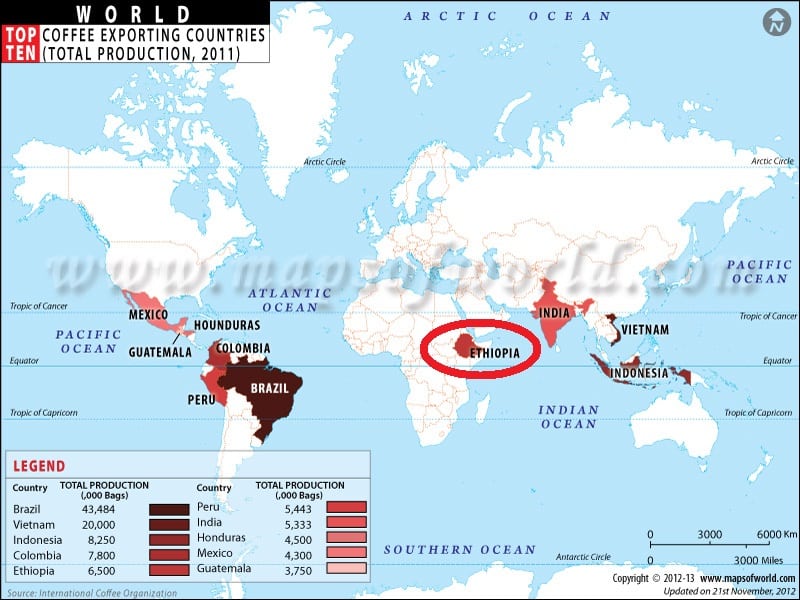
The first of our Ethiopia facts shows us that the country is considered to be the birthplace of one of our favorite drinks – coffee. The name itself even derives from the Ethiopian language and comes from the word Kaffa. Legend tells us that there was a shepherd by the name of Kaldi who had a herd of goats to tend. He noticed that after they had eaten the leaves of the coffee plants on his land, they became agitated and restless. Kaldi decided to try the leaves himself, and discovered they had the same effect on him. Thus, an empire that is now worth millions of dollars worldwide was born.
Ethiopia Is One of the Only Countries in Africa Never to Have Been Colonized
Ethiopia is one of the few countries in Africa that has never been colonized by another country. The only time it has ever come close to being colonized was between the years 1936 and 1941 when there was a brief incursion by Italian forces. However, this was eventually subdued and the Italians retreated. Since then, no other countries have made an attempt to colonize Ethiopia.
Ethiopia Has Its Own Specialty Bread Called Injera

The next of our Ethiopia facts centers on food. Injera is a very healthy sourdough bread, which is made from an ancient grain called teff. Teff dates back to around 10,000BC and holds the record for being the smallest grain in the world. It is very high in calcium, iron and B vitamins, and is a very good source of protein, making it a great all-rounder and staple of the diet of Ethiopian people. It is also useful to note that it’s a perfect gluten-free option.
Ethiopia Is the Birthplace of Christian Civilization
Throughout the years archaeologists have turned up artefacts in the country that date the start of Christianity in Ethiopia to around AD324. This means that, technically, the country qualifies as the birthplace of this particular religion. Some historians and archaeologists believe that a different country – such as Armenia – is the birthplace of Christianity, but Ethiopia is currently the record holder for the earliest dated artefact relating to the religion.
Ethiopia Is a Haven for Vegetarians and Vegans
Unlike many countries in Africa, Ethiopia is a great place to travel to if you are vegetarian or vegan. This actually all boils down to religion. The Ethiopian people – for the most part – follow a strict code of Orthodox Christianity which means that on certain days of the week (usually Wednesday and Friday) they are simply not allowed to consume any animal products. Therefore, if you go out to eat on certain days, you will only be served meat-free dishes. This makes it a great place to go to if you are vegetarian or don’t like to eat too much meat.
Ethiopia’s Rural Way of Life Means There Are Many Large, Extended Families
Another one of our fascinating Ethiopia facts tells us about family life. Many people in the country live in large, extended families, often in rural outposts. These extended families will live in clusters of houses and farm the land together. This can mean that children who are of school age often have to walk miles to their local educational establishment. However, even though education in the country is free, many children choose to opt out of the system and stay at home with their families to learn about home life and farming instead.
Gebeta, the World’s Oldest Board Game, Has Its Roots in Ethiopia
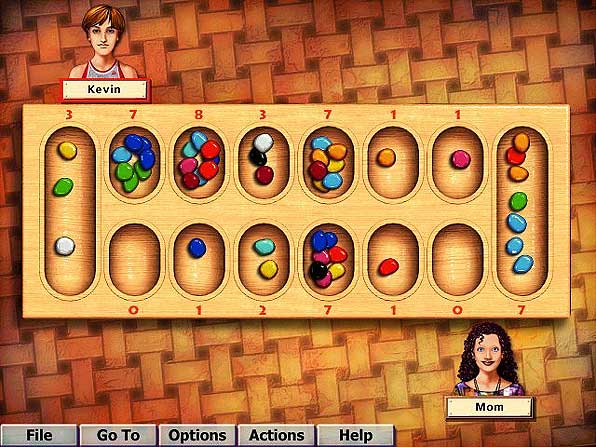
One of our cultural Ethiopia facts tells us about a fascinating board game. This ancient board game is believed to have been first played in Ethiopia in the 6th or 7th century AD. The earliest evidence of the game are some fragments of a board made from pottery and rock cuts found in what is now Eritrea. It is what is known as a count and capture game, which involves counting seeds and stones in pits on a board. It has many variations all over the world, but this version is believed to be the oldest.
Ethiopians Don’t Have a Traditional Family Naming System
In the Western world, we’re used to, for the most part, having a first name and a surname, which we will usually take from one of our parents. However, in Ethiopia this kind of system does not exist. Parents and children will not share a last name. Children will typically take their father’s first name as their last name. Another country that sometimes follows this naming tradition is Wales within the United Kingdom.
Ethiopians Are Known for a Rather Rare and Special Dance Called Eskista
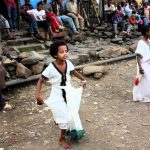
The fascinating dance Eskista is very unusual in that is uses intense movements which radiate out from the shoulders of the people performing it. It is characterized by rolling and bouncing the shoulder blades and jerking the chest. It is usually performed to traditional African music. It is considered to be one of the most technically difficult and complex dances in the world today, with very few people other than native Ethiopians able to recreate it successfully.
The Country Has Around 80 Different Ethnic Groups
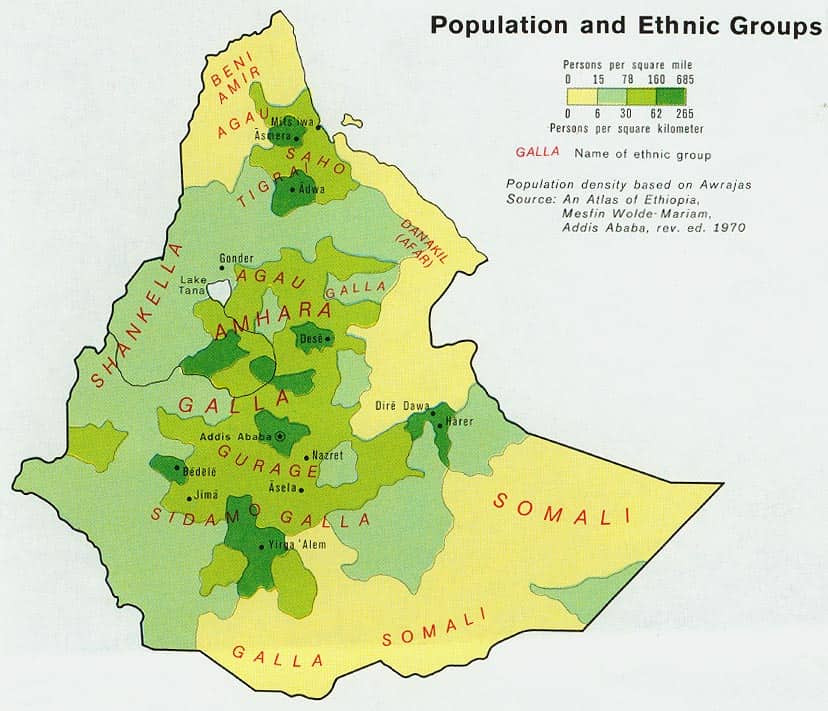
The two largest of these groups are known as the Oromo and the Amhara. The former is the single largest ethnicity in the country with some 35% of the country’s population considered part of it. The latter inhabits the Northern and Central areas of the country and accounts for 26.9% of the population. This group also give their name to the official language of the country, Amharic.
The Ethiopian Calendar Has 13 Months!
The next of our fascinating Ethiopia facts shows us that the Ethiopian people have a calendar which spans 13 months rather than the 12 most of us are used to. Their calendar is actually eight years behind our Western one. It also differs from our calendar in that 12 of the months have exactly 30 days, but the last one has either 5 or 6 days more depending on the year. Ethiopians also celebrate their new year on a different day too; whereas we consider 1 January to be ours, they consider 11 September to be theirs.
Ethiopian People Let the Sun Rule Their Time
Many equatorial countries have the same rule about time, and Ethiopia is no different. The country lets the sun dictate its time. According to the Ethiopian culture, sunrise marks the start of the day, and sunset the exact end. What many other places in the world would call 7.00am, Ethiopians would call 1.00am. Noon and midnight there occur at 6.00am and 6:00pm respectively in our time.
Ethiopia Is Home to the Gelada Baboon – Which isn’t Actually a Baboon At All!

One of the most interesting Ethiopia facts relating to animals concerns the gelada baboon, which is native to the country. It is called a baboon, but is actually more like an old world monkey. It is one of the few remaining primates left that graze. The animal is well known as a genus for letting its female species dominate. Younger males of the species collect together in what are called Bachelor Groups, while older males tend to group together to look after the young monkeys. As a complete species, they will often club together and congregate in huge groups, sometimes as big as 800-strong, especially where they know they will be able to find adequate grazing ground and food supplies.
Ethiopia Is the Birthplace of Humankind
One of our truly astonishing Ethiopia facts is that it is believed the country is where we all originate from as humans. Archaeologists have found evidence to suggest that the oldest human-like bones and skeleton – aged around 4.2 million years – were found there. The hominid skull was called Ardi. Previous to this, the oldest hominid was believed to be a skull belonging to someone historians called Lucy, an incredible 1 million years younger than Ardi.
Abebe Bikila from Ethiopia Was the First Black African Athlete to Win a Gold Medal at the Olympics

In 1960, this amazing athlete became the first from his country to win a gold medal in the Olympic Games when he beat Morrocan runner Rhadi Ben Abdesselam to the finishing line of the marathon event by a full 25 seconds. Even more remarkable is the fact that he had only been drafted in to the Olympics as a last resort after Ethiopia’s original marathon runner had had to withdraw following a broken foot. In 1964, Bikila completed the feat again, winning gold at the Tokyo Olympics in the same event.
Rastafarians Originate in Ethiopia – Not Jamaica!
Many people would associate the Rastafarian movement with Jamaica, and to an extent they’d be right to as, for the most part, it did evolve there. However, its proper spiritual homeland is Ethiopia and in fact the name itself comes from the home language of the country, Amharic. The first part Ras means chief. The second part – tafari – was the first name of the Emperor Haille Selassie I. Further proof exists when you check the Ethiopian flag and see that the colors are virtually identical to those of the movement.
Ethiopia Facts – Facts about Ethiopia Summary
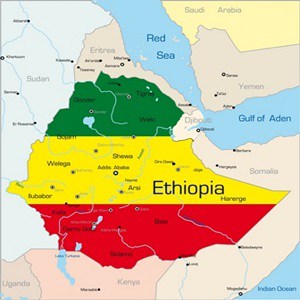 Facts about Ethiopia show us that the country was the birthplace of humanity, home to the world’s oldest board game and also was where the Rastafarian movement first developed. In addition to this, it’s also the best place to go in Africa if you’re a vegetarian or like a good cup of coffee – it was also the place where this delicious hot beverage was first discovered.
Facts about Ethiopia show us that the country was the birthplace of humanity, home to the world’s oldest board game and also was where the Rastafarian movement first developed. In addition to this, it’s also the best place to go in Africa if you’re a vegetarian or like a good cup of coffee – it was also the place where this delicious hot beverage was first discovered.
Was this page helpful?
Our commitment to delivering trustworthy and engaging content is at the heart of what we do. Each fact on our site is contributed by real users like you, bringing a wealth of diverse insights and information. To ensure the highest standards of accuracy and reliability, our dedicated editors meticulously review each submission. This process guarantees that the facts we share are not only fascinating but also credible. Trust in our commitment to quality and authenticity as you explore and learn with us.
